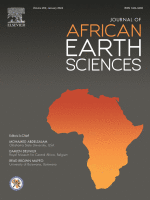“A systematic horizon scanning was undertaken to identify the up-to-date perspectives on paleontological research. A summarized evaluation (applicability and acceptability) was also provided to identify the challenges and opportunities of paleontological techniques. Present-day advances in molecular analyses and scanning techniques generate valuable new data to test old and recent systematic problems and provide a revolution in systematic paleontology. Integrating non-destructive high-resolution virtual solutions such as X-ray computed tomography and 3D-laser scanning with machine learning can be widely used for the analysis of internal features of fossils and more efficiently for automated taxonomy. The slow pace of the revolution in paleontological techniques can be attributed to the limited advanced statistical training and the cost of the instruments, software, and hardware needed for digitization and imaging. In addition, molecular techniques offer a unique source of information (e.g., biomarkers), however, costs and difficulties are limiting their applications. Sclerochronology using carbonate shells of well-preserved fossils (e.g., mollusks, corals, and fish) has the potential to reconstruct the paleoclimate at very high resolution (daily, seasonal, and annual). These approaches are revolutionary and will grow continuously to substitute traditional methods and will reduce time and human efforts.” see more

